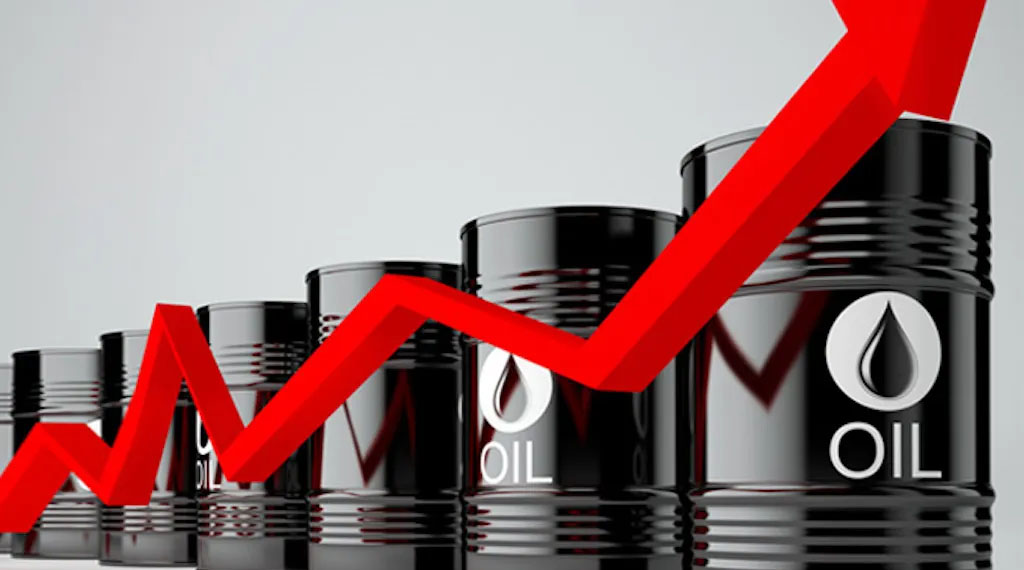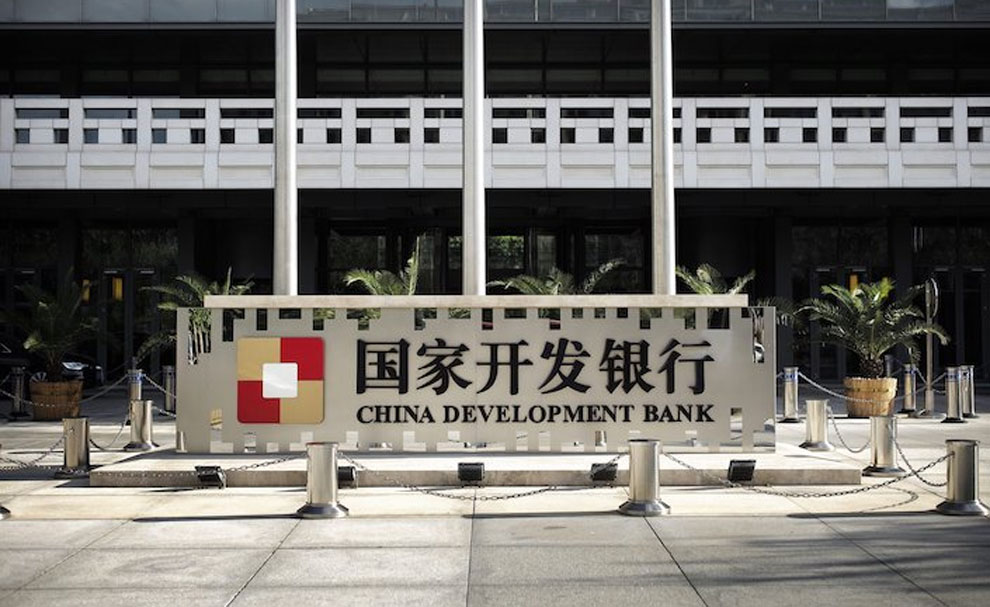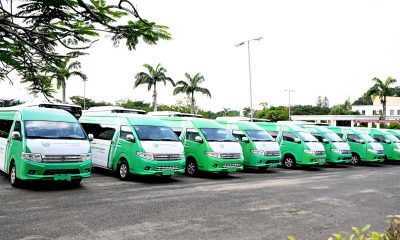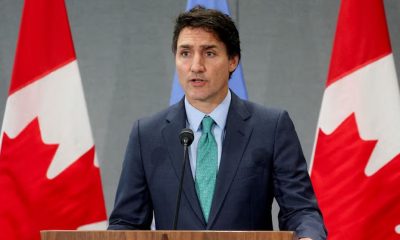Business
AfCFTA: FG to regulate road transport system

The Federal Government plans to regulate road transportation and mass transit operations in the country.
Minister of State for Transportation, Senator Gbemisola Saraki, disclosed this on Monday in a meeting with a section of automotive manufacturers led by Ifeanyichukwu Agwu, the Chief Executive Officer of BKG Exhibitions Limited, and Chairman Organising Committee of Abuja International Motor Fair.
She said the decision became necessary in order to reposition Nigeria’s road transportation system ahead of the African Continental Free Trade Area.
The Nigerian road transportation and mass transit is largely an unregulated territory.
She lamented that of 76000 trucks registered at the port only 17 met the standard, stressing that Lomé and Cotonou were complaining that Nigerian vehicles are below standard.
Saraki, however, disclosed that arrangements were being put in place for the federal government to brainstorm with players in the automotive industry, including assemblers and manufacturers, to find a local solution that would move the industry forward.
According to the her, over 97% of passengers’ movements in Nigeria are done on the road, stressing the need for the government to ensure proper restructuring for better service delivery.
“This afternoon, I was in a meeting that the Vice President chaired and we are looking at how best to tackle the issue of road transportation,” she said.
“I am sure you will agree with me that right now, it is unregulated, anybody can put the vehicle on the road and call himself a transporter and they are going.
“Funds are not coming, taxes are not paid, there is no consumer satisfaction, there is no feedback, it’s completely disoriented right now.
“And with the fact that ACFTA is coming soon, in order for us to compete properly, we need to have a regulated road transportation system for commercial operators, which now comes to the manufacturers.
“With the ACFTA coming, this morning it came out that we have a lot of substandard vehicles on the roads.
“I know that Lome and Cotonou have complained that the vehicles in Nigeria are below standard. Of the 76000 trucks registered supposedly only 17 meet the standard,” she noted.
Earlier, Agwu described the nation’s auto industry as an orphan that is being overused even though it accounts for 15% of those working in the country.
The BKG boss lamented that the auto sector is under heavy stress which affects Nigerians in terms of cost of transportation, lack of safety in the movement of goods and services due to bad vehicles.
According to Agwu, policy inconsistency is one problem that has cost the auto sector a whole lot of money.
“Companies set up factories to assemble with billions of Naira and the next thing you see is they change the policy and said you can bring in whatever you want.
“Where does that work? And that is why serious companies actually do not come to Nigeria” he said.
Business
Oil prices surge over supply disruption

Oil prices surge over supply disruption
Oil prices reversed early declines yesterday, induced by concerns of tighter Russian and Iranian supply in the face of escalating Western sanctions.
Brent crude futures advanced 60 cents, or 0.79 per cent.
It sold for $76.90 a barrel while U.S. West Texas Intermediate (WTI) crude was up 50 cents, or 0.68 per cent. It sold for $74.06.
The Federal Government’s oil price benchmark in the 2025 budget estimates is $75 per barrel.
It seems market participants have started to price in some small supply disruption risks on Iranian crude exports to China, said UBS analyst Giovanni Staunovo.
Concern over sanctions tightening supply has translated into increased demand for Middle Eastern oil, reflected in a rise in Saudi Arabia’s February oil prices to Asia, the first such increase in three months.
READ ALSO:
- 46 kidnapped in Zamfara as gunmen attack Gana town
- Six soldiers killed, 34 terrorists eliminated in Borno troops, ISWAP clash
- ICPC slams El-Rufai’s ex-aide with money laundering charges
In China, Shandong Port Group on Monday issued a notice banning United States-sanctioned oil vessels from its network of ports, three traders said, potentially restricting blacklisted vessels from major energy terminals on China’s east coast. Shandong Port Group oversees large ports on China’s east coast, including Qingdao, Rizhao and Yantai, which are major terminals for importing sanctioned oil.
Meanwhile, cold weather in the U.S. and Europe has boosted heating oil demand, though oil price gains were capped by global economic data. Euro zone inflation accelerated in December, an unwelcome but expected blip that is unlikely to derail further interest rate cuts from the European Central Bank.
“Higher inflation in Germany raised suggestions that the ECB may not be able to cut rates as fast as hoped across the eurozone,” said Panmure Liberum analyst Ashley Kelty.
Technical indicators for oil futures are now in overbought territory and sellers are keen to step in again to take advantage of the strength, tempering additional price advances, said Harry Tchilinguirian, Head of Research at Onyx Capital Group.
Market participants are awaiting more data this week, including the U.S. December non-farm payrolls report on Friday, for clues on U.S. interest rate policy and the oil demand outlook.
Oil prices surge over supply disruption
Railway
Kano-Kaduna railway project gets $254.76m China bank loan approval

Kano-Kaduna railway project gets $254.76m China bank loan approval
The China Development Bank (CDB) has approved a loan of $254.76 million (€245 million) for the Kano-Kaduna railway project in Nigeria.
According to information on the bank’s website, the funding is expected to provide crucial financial support for the ongoing development of the railway, ensuring the project proceeds without delays.
The Kano-Kaduna railway is a standard-gauge line spanning 203 kilometres, designed to connect Kano, a major commercial hub in northern Nigeria, to the nation’s capital, Abuja.
Once completed, the railway will offer residents a safe, efficient, and convenient transportation alternative, significantly enhancing regional connectivity.
READ ALSO:
- Tinubu cabals, most dangerous in Nigeria’s history, says ex-minister
- Fubara has missed opportunity to settle with Wike – Rivers APC chairman
- Naira exchanges for N1,650/$ in parallel market
Beyond improved mobility, the railway project is expected to stimulate economic activity along its route.
It is also designed to promote the growth of related industries and generate numerous job opportunities for Nigerians during both the construction and operational phases.
The project has been highlighted as a key initiative under the Third Belt and Road Forum for International Cooperation.
It is being executed by the China Civil Engineering Construction Corporation (CCECC), with financing provided by the CDB.
According to the bank, construction is progressing smoothly.
The CDB emphasised its commitment to continued collaboration with the Nigerian government to ensure the timely disbursement of funds and effective management of subsequent phases of the project.
The bank stated, “Going forward, it will closely coordinate with Nigerian partners to ensure the smooth disbursement of subsequent loans and effective post-loan management.”
Kano-Kaduna railway project gets $254.76m China bank loan approval
Business
Naira exchanges for N1,650/$ in parallel market

Naira exchanges for N1,650/$ in parallel market
The Naira yesterday appreciated to N1,650 per dollar in the parallel market from N1,665 per dollar on Monday.
But the Naira depreciated to N1,538 per dollar in the official foreign exchange market.
Data published by the Central Bank of Nigeria, CBN, showed that the exchange rate for Nigerian Foreign Exchange Market (NFEM) rose to N1538 per dollar from N1,534.56 per dollar on Monday, indicating N3.44 depreciation for the naira.
READ ALSO:
- Don’t ignore Makinde’s warning on insecurity, Gani Adams tells S-West govs
- UAE golden visa offer, new opportunities for investors, entrepreneurs, students
- 7 things to know about Eric Chelle, new Super Eagles coach
Consequently, the margin between the parallel market and NFEM rate narrowed to N112 per dollar from N130.44 per dollar on Monday.
Naira exchanges for N1,650/$ in parallel market
-

 metro2 days ago
metro2 days agoUpdated: Nigerians worry over Wike’s look after poisoning alarm
-

 Education2 days ago
Education2 days agoUNILORIN introduces courier service for collection of certificates
-

 Education2 days ago
Education2 days agoWAEC announces resit exams for candidates from Jan/Feb 2025
-

 News1 day ago
News1 day agoReactions as Mahama calls Tinubu ‘president of Ghana’ during inaugural speech
-

 metro2 days ago
metro2 days agoDistribution of CNG buses tears NANS leaders apart
-

 metro3 days ago
metro3 days agoNDLEA arrests 61-year-old female Lagos socialite, drug kingpin
-

 International2 days ago
International2 days agoCanada’s Prime Minister, Trudeau, resigns
-

 Education1 day ago
Education1 day agoPoly graduates protest proposed exclusion from NYSC



